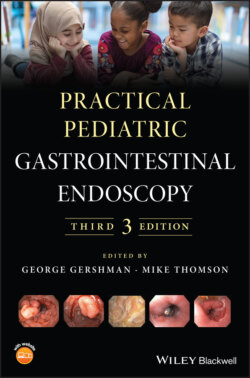Читать книгу Practical Pediatric Gastrointestinal Endoscopy - Группа авторов - Страница 55
Assessment based on quality metrics
ОглавлениеCurrent pediatric endoscopy training programs are increasingly requiring learners to monitor quality measures, such as independent terminal ileal intubation rate and patient comfort, to be used as part of a global or summative assessment of trainees. Additionally, quality metrics are being used by practicing endoscopists as formative assessment tools to help promote improvement in care delivery [42]. However, the application of quality metrics to pediatric endoscopy requires pediatric‐specific measures, which have yet to be formally developed. Currently, there are limited data on the applicability of adult‐derived quality metrics to pediatric practice and their impact on clinically relevant outcomes. For example, with regard to cecal intubation rate, the reported successful completion rate for pediatric endoscopists varies from 48% to 96% [43–48]. Perhaps of even more pertinence to pediatric procedures, the reported terminal ileum intubation rate varies from 11% to 92.4% [43,45–49]. Additional research is required to help further delineate and define pediatric‐specific quality indicators that can be used for assessment and quality assurance purposes and validate them in a longitudinal prospective fashion [50].
